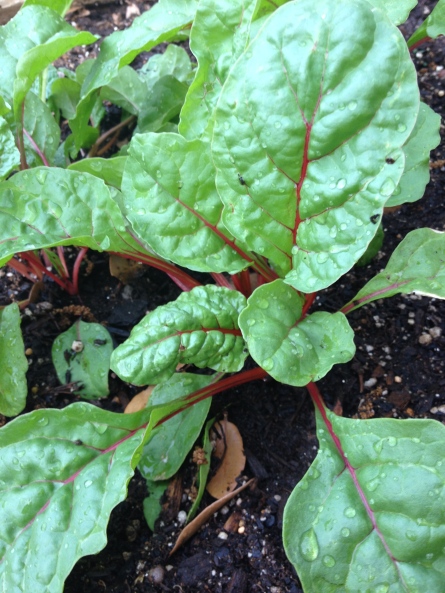
Austin, Texas is quite possibly the nicest place on the planet this week. The temperature is perfect. The mosquitoes haven’t yet hatched and there are lots of beautiful wildflowers and tiny creatures around the yard. When the weather is like this, I’m so ridiculously happy. I sit on the porch to eat and read and drink tea so I can soak it in. When the weather is nice, my kids are funnier, I have a heart full of gratitude for my husband for just existing on this planet and I appreciate my parents to the point of tears. I am way more friendly with strangers when the weather is nice. Just today, I hung out at the check out counter and had a great 10-min conversation with the pharmacist after paying my bill. Wow, is she a nice lady.
This is in contrast to how I feel when it is rainy, dark and cold. In the winter, I don’t take off my scarf and 1970’s green ski-jacket for months. I’m noticeably less happy and I don’t chat with people in the check-out line nearly as much. I get cold easily and when I’m cold, I’m more easily annoyed with my children or with my husband. I tend to feel bad about myself. I lived in Seattle for 10 years and I’d get so depressed in the grey, cold of winter that I think I lost months of my life to SAAD-ness. Months of my life just passed me by…I’m not even kidding.
It’s been like this for years. My mood shifts with the turns of weather and so does my energy, friendliness and level of happiness. It’s pretty exhausting to have my feelings so entwined with something as unpredictable and as out of my control as the weather. Fortunately, with the last few years of regular yoga practice, this is changing. I’m less dependant on good weather for good times because a daily yoga practice gives me time to connect to things that are more rooted and stable. Every day, there’s a little time set aside to connect to a sense inside of myself that is unaffected by the weather and other fleeting, ever-changing things. Even so, with this week’s exceptional sunshine-y experience this came up again. My sunshine-drunk self sincerely wished it could stay nice forever because, at a deeper level I thought, if the weather stays nice, then I might be able to stay nice, too.
Mine is a classic experience of rāga– a misperception that something outside of me can make me happy. Rāga is one of the five kleśas, or roots of suffering, listed in Patañjali’s Sutra II.3.* Just because I’d like the weather to be lovely for more than 3-weeks per year doesn’t mean it will be. The weather changes, and it is natural for my moods to change, too. The overall outlook of nice, positive feelings is possible to cultivate but it needs to come from something that is more stable than the Austin climes. It comes from within. Queue the steady and appropriate daily yoga practice.
Fundamentally, yoga isn’t about tricky poses that you bust out on a sticky mat, though that can certainly be part of the process. Yoga is about the mind and regularly and intentionally connecting that mind to something stable, good and unchanging inside of, rather than outside of, yourself. It’s a practice that helps bring us to a place that is more steady, still, and focused so we come to know the difference between the stuff that changes and that which doesn’t. When we experience a calm mind on a daily basis, we have a better chance at being aware of avidyā, the ways we misperceive. Once we have the awareness, we can start to do something about it. As we do something about it, life gets better. The changing weather, or whatever change we struggle to accept, doesn’t sway our deeper sense of satisfaction and peace in quite the same way. I haven’t found a better or more effective way to support this kind of change than a daily, personal breath-centered yoga practice with meditation. It’s what I practice and what I teach. I believe in it, 100% and my life is better for it. Yours can be, too.

*Patañjali’s Yoga Sutra II.3
Avidyā asmitā rāga dveṣa abhiniveśāḥ klēśāh
Avidyā is the umbrella category for the misperception that we humans experience. When we don’t see something for what it really is, the lack of clarity causes suffering. How? We make different decisions when we perceive incorrectly and decisions based on misperception don’t take us in the right direction. We all do it. And there are ways that we start to see more clearly. (Hint: it involves yoga)
Asmitā– we misidentify and think that an experience that is temporary is who we really are. “I am sad.” “I’m so perky.” “I am angry.” No, you are not an angry person or any of these other things. They aren’t who you are or permanent qualities, they are feelings. Feelings are temporary and changing. You, at your essence, are not.
Rāga – something outside of me has made me happy in the past so I spend energy and time to try and repeat that experience. (good weather)
Dveśa – something outside of me has made me unhappy in the past so I spend energy and time to avoid that thing (cold and grey weather)
Abhiniveṣā – fear. No matter how refined and progressed we are, this one gets us all. According to Sutra 4.10 fear stems from a fear of death. Biologically, we are wired to stay alive. Fear is programmed in. We all get stuck with this one.






